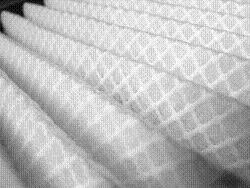
How Air Filters Impact HVAC Efficiency
Forced air systems rely on airflow to function properly. As dirt and debris gather in an air filter, each cell or pore of the filter gradually becomes obstructed. This blocks airflow and means the fan must work harder as it struggles to pull in air. This can lead to the fan motor using more energy, thereby increasing your utility bill. Dirt and soot will also begin to build up on inner parts of the system, such as the heat exchanger, which can shorten your the life span of HVAC equipment. And the fan motor can eventually burn out, causing the system to overheat. This will ultimately lead to HVAC system failure and might require that you buy a new system.
How Does an Air Filter Affect Indoor Air Quality?
An air filter is one important barrier for allergens. As an air filter becomes soiled, it becomes inefficient at filtering the air. Dust and debris will begin to collect in the ductwork, and as air flows through the ducts, the dust can enter your home, reducing your IAQ.
Dust and other debris also provides food and shelter for mold and bacteria. These can grow on the filter and other HVAC components. Spores might then enter your home’s air supply. Changing air filters takes very little time and yet can prevent these situations from the start.
For more advice about air filter replacement or other HVAC concerns, please contact Rodenhiser Plumbing, Heating and Air Conditioning. Our service area includes the Route 495/128 area of Norfolk MA.
Image via Shutterstock.com